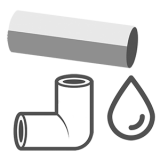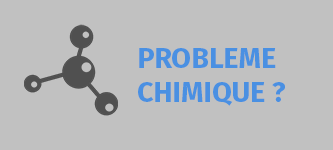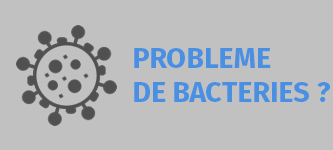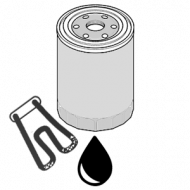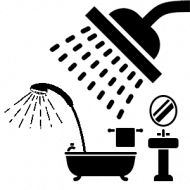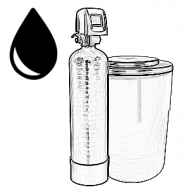| » » » |
Que recherchez-vous ?
Limestone in water: What are the ecological solutions for the home?
If you have hard water in your water system, it can cause a number of different problems such as scale buildup and deposits, rough laundry, and soap that won't lather. You measure water hardness through a water analysis that shows the amount of calcium and magnesium salts in the water. The amount of these minerals determines the hardness of the water. Water hardness is mainly measured in German degrees of hardness, °TH and the limit value for you is 15 °TH. However, you may have problems with hard water at a lower hardness than this.
Scale problems in the water
You usually discover that your water contains too much lime when you use water from the kitchen, bathroom or laundry room. The laundry becomes hard and rough and requires a lot of detergent and fabric softener. Hard water can also damage washed textiles and cause skin irritation. In the bathroom, you notice that the soap and shampoo lather less than they should and there are lime deposits in the water. It is the same in the kitchen with coatings and stains on the worktop and less suds in the detergent. One problem with limescale in water is that machines in bathrooms and kitchens, such as dishwashers, washing machines and coffee machines, can have limescale in the pipes clogging them. This leads to unnecessary wear and tear on the devices and negatively affects service life and quality.
Do I have hard or soft water?
You can detect if you have hard water with the naked eye. Hard water creates deposits, coatings and a linen that is not as soft as it should be. Anyone who has their own water via a dug or drilled well should carry out a water test at regular intervals to ensure that the water remains of good quality. Hard water can also cause problems such as scale in water heaters and boilers. The substance is poor at conducting heat, which impairs function. This means that the boiler has to use more energy to heat the water. This increases the cost of heating and, in the worst case, the elements can overheat.
Clean water from limestone with a softener filter
To deal with hard water and limescale problems, we recommend that you install an effective water softening filter. These scale filters are fully automatic and measure water consumption and backwash if necessary. The filter neutralizes and helps eliminate limescale in the water. The softener filter is built to order so it can be tailored and perform optimally for your particular water system.
What are the solutions against limescale in drinking water?
If you're dealing with limescale issues in your water, don't worry, you're not alone. Many households are affected by this problem, but there are effective solutions to fix it. In this article, we will explore the different options available to combat limescale in water.
Water softeners
Water softeners are one of the most popular solutions to combat limescale in water. They work by removing the minerals responsible for the formation of limescale deposits. However, they can be expensive to install and maintain.
Water filters
Water filters are another option for removing limescale from water. They work by trapping the minerals responsible for the formation of lime deposits. They are cheaper to install and maintain than water softeners, but they require regular replacement of filter cartridges.
Magnetic systems
Magnetic systems are a relatively new solution to combat limescale in water. They work by using magnetic fields to prevent the formation of limescale deposits. They are easy to install and maintain, but their effectiveness is often questioned.


